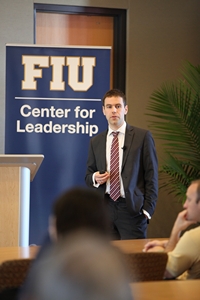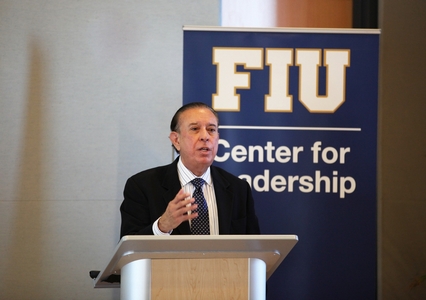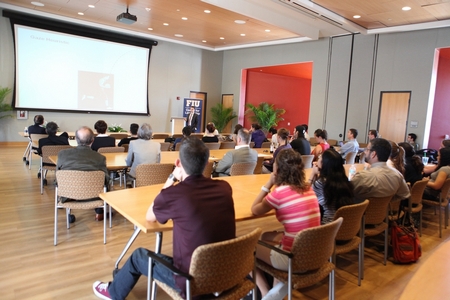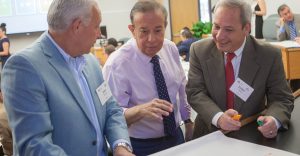
How do you make your best or most important decisions . . . especially when you don’t have a lot of time to decide?
Do you evaluate all the options carefully, plan a path, modify it and then act with the knowledge that you’ve done all the necessary preparation to ensure your choice is the wisest one?
Or do you decide rapidly, using a few simple guidelines?
And is there a scientific basis that can confirm the value of one approach over the other?
Julian Marewski, a scientist from one of the foremost research centers on human development in the world—the Max Planck Institute for Human Development in Berlin—and his colleagues are working on that question, among others. In a lecture titled “Making Smart Decisions Utilizing Simple Strategies,” sponsored by the Center for Leadership at Florida International University (FIU), Marewski’s lecture, in which he shared results of his research with an audience of more than 60 students, faculty and staff members, was part of “The Leadership Lectures,” the center’s newly launched lecture series focused on leadership and its challenges.
“We are looking at the value of decision-making that turns out to be easy to use and are providing scientific justification for our claims,” said Marewski, who has received several awards for his research. “Interestingly, when you talk to managers, they may tell you that they relied on a very simple strategy to make a given decision, but admitting the use of simple strategies is not always socially accepted in a company.”

Is intuition a way to make decisions?
“I am interested in psychology and thought the lecture would be valuable,” said Carolina Berget, program coordinator for the College of Business Administration’s graduate programs in management information systems and human resource management. “What struck me most was when he spoke about intuition. Many people wouldn’t think of intuition as being ‘real,’ that it’s not something that can be measured, but he explained how they do research on this.”

Because of what looks like an unconventional stance in some disciplines, Marewski and his colleagues—from disciplines spanning medicine, economics, and philosophy, to name just a few—are sometimes perceived as the avant-guard, an evaluation that he hopes will enable their work to evolve into a whole new field.
For upcoming lectures, please visit http://lead.fiu.edu/.




